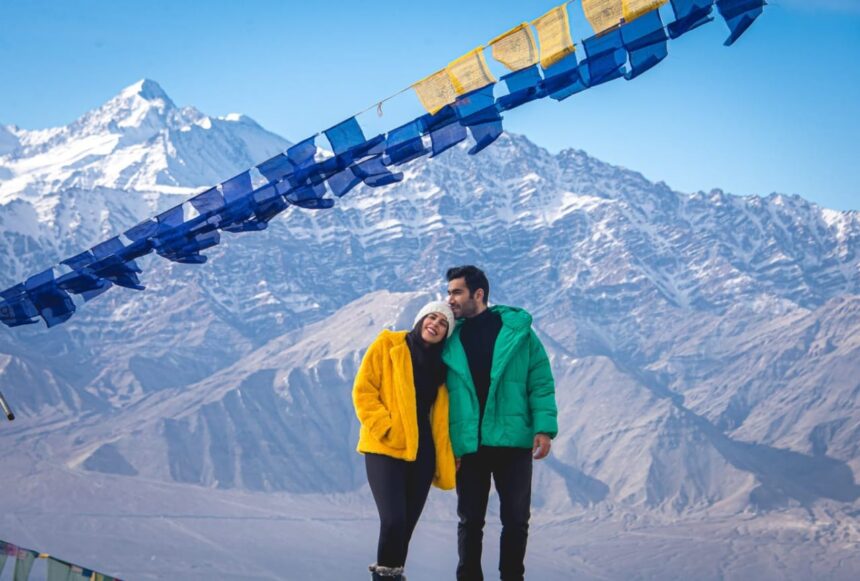Ladakh winter travel shows you a dreamlike world of snow covered mountains, frozen rivers and tranquility far from the summer season rush. If you are thinking about visiting this winter wonderland, booking a ladakh trip package can be helpful since it takes care of your accommodation needs, transportation issues and offers guided tours.
However, visiting Ladakh in winter requires careful planning and preparation due to the harsh weather conditions. One of the must-visit sites is the Sumda Chun Monastery in Ladakh, which showcases the region’s rich Buddhist heritage and serene beauty.
Prepare for Harsh Weather Conditions
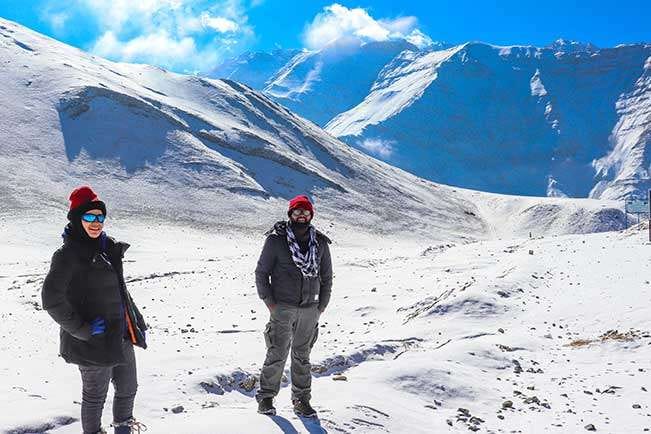
Ladakh winter travel is not for the weak hearted. The temperatures often fall as low as -30°C especially at night. You should come prepared with all necessary gear that will protect you from severe cold. Here’s what you’ll need:
- Warm clothing: Layering is essential. Start with thermal innerwear then add fleece jackets and finish with a heavy-duty down jacket.
- Accessories: Do not leave behind woolen gloves, thermal socks, cap and scarf; also sunglasses that can protect your eyes from snow reflection.
- Footwear: Buy waterproof boots with good grip so that it is easy for walking on the snowy ground.
Remember that the experience of traveling through Leh –Ladakh region during winters can be ruthless so it helps if one can take proper precautions.
Stay Hydrated and Eat Well
In high altitudes dehydration tends to occur more frequently but cold climate makes one not feel thirsty most times hence it’s important to keep drinking water throughout your journey. Carry a flask containing hot water and keep sipping some every now and then while drinking calorie-rich food will help keep you warm as well as provide enough energy needed to explore the rugged landscapes.
Be Prepared for Altitude Sickness
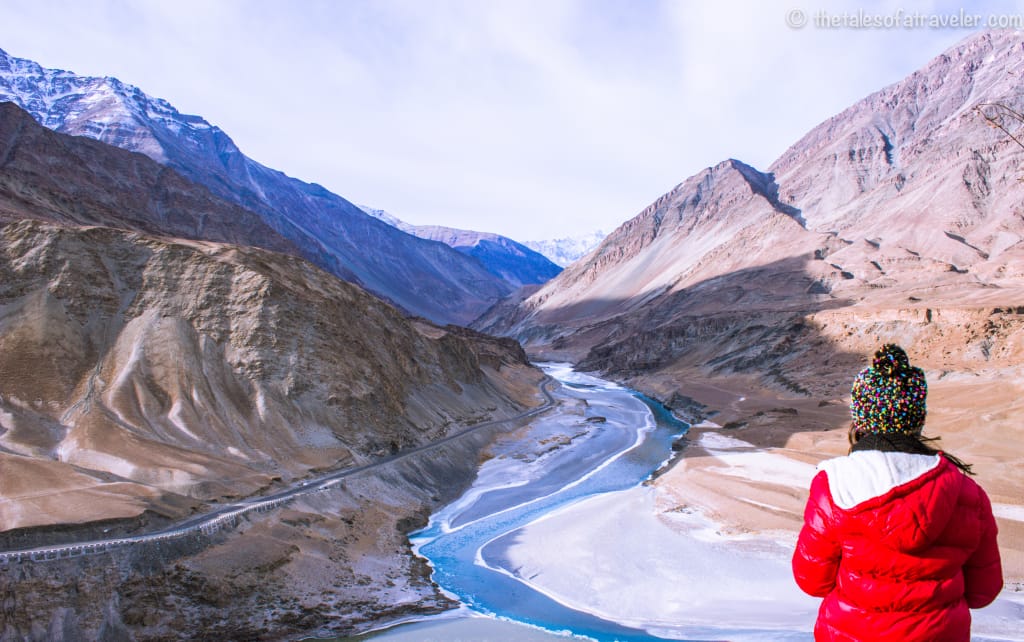
Ladakh experiences a high number of cases of altitude sickness, especially during winter when the oxygen levels are lower. To minimize the risk:
- Acclimatize: Take two days to acclimatize.
- Medications: Consult a doctor about using acetazolamide (Diamox) to prevent altitude sickness.
- Stay hydrated: Avoid alcohol and smoking but drink plenty of water.
It is important to understand and recognize symptoms such as headaches, nausea, and dizziness which might indicate that one has high-altitude illness. In case they worsen it is better to descend at low elevation.
Plan Your Itinerary Around Road Closures
Many roads in Ladakh including Leh-Srinagar Highway and Manali-Leh Highway get blocked due to heavy snowfall during winter season. The best way to travel by road is by air through Leh Airport while planning your itinerary you should be flexible since some places may not be accessible at all.
If you want a taste of the cultural aspect of Ladakh region, think about including Sumda Chun Monastery in Ladakh on your schedule; this hidden gem should not miss from your itinerary if you can find it. A remote village houses this ancient monastery that offers an insight into the rich Buddhist heritage of Ladakh.
Discover Winter Treks in Ladakh
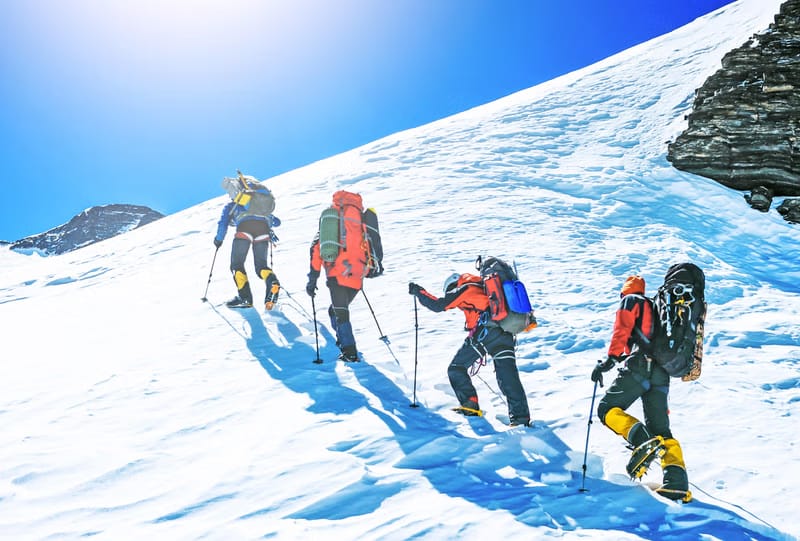
For lovers of trekking, Ladakh is heaven with its own set of winter treks that come with unique challenges and breath-taking beauty. Chadar Trek is the most famous as trekkers walk on Zanskar river which gets frozen in winters while other treks include Sham Valley Trek or Nubra Valley Trek where people experience fascinating views and get exposed to elements of winter wilderness in Ladakh region.
If you are thinking about guided trek then look out for any tour packages going to Ladakh as they would normally cover essential stuff like permits, guides and equipment.
Accommodation and Local Transport
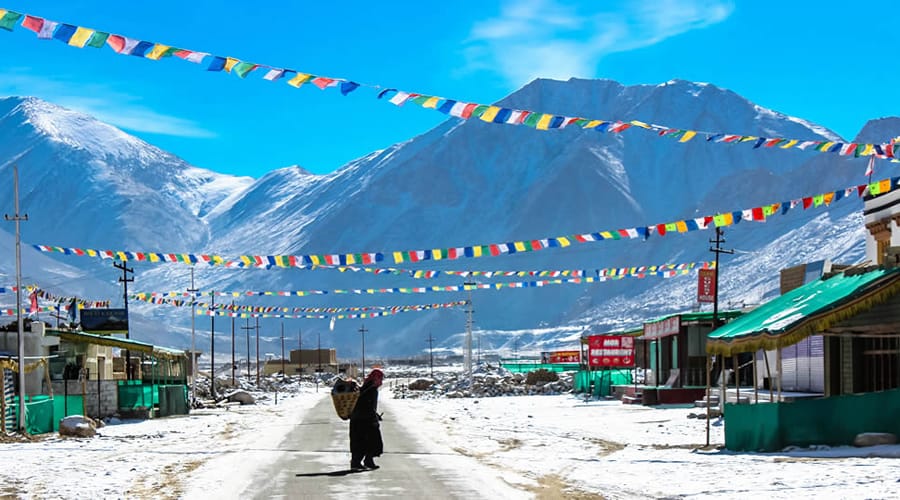
To avoid this, many hotels and guesthouses in Ladakh close for winter, so it is important to book your stay in advance. You can experience Ladakhi hospitality first-hand by staying at one of the homestays in Leh.
In winter, local transport may be a challenge due to fewer taxis and some routes being closed for travelers. It is advisable to rent a private vehicle with an experienced driver who knows the condition of the roads well enough to navigate through safely snowy landscapes.
Respect the Local Culture and Environment
Ladakh has a rich cultural heritage and scenic beauty that will take your breath away. When you visit, please respect local customs and traditions. Be modestly dressed especially when visiting monasteries; always ask for permission before photographing people.
The fragile nature of the winter environment calls for responsible tourism with no littering or minimizing environmental impacts. Carry reusable water bottles; avoid using plastic bags once then thrown away as they are single-use items; also be energy conscious.
Health and Safety Tips
To make things easy, you need to stay healthy and safe while traveling in winter throughout the Ladakh area because it can prove to be quite challenging sometimes.
Keep connected: Mobile networks in remote parts of Ladakh can sometimes fail, therefore you might want to carry around a satellite phone just in case there’s any emergency.
First-aid kit: Pack a first-aid kit with essential medications including those for altitude sickness; common cold symptoms as well as pain relief medication etc.
Stay warm: Always have extra layers of clothing with you so that when it gets extremely cold outside, you will not freeze if you remain outdoors for long hours at one time without adding any more clothes on top of what is already making up your dress code.
Best Time to Visiting Ladakh in winter
While Ladakh is open during all seasons including winter months November through February are the most suitable. The landscape is covered with snow and frozen rivers as well as lakes create a magical atmosphere during this period of time. However, January and February are the ideal months to visit in order to witness various winter festivals like Dosmoche and Spituk Gustor that take place in Ladakh.
Book a Ladakh Trip Package
Planning a trip to Ladakh during winter can be overwhelming particularly if it’s your first time there. However, booking a Ladakh trip package will help you ease the burden associated with planning. These packages often include accommodation, transportation, guided tours, and permits to ensure that everything runs smoothly without any problems arising along the way. They can be tailor-made depending on whether you want to go for cultural exploration or adventurous treks.
